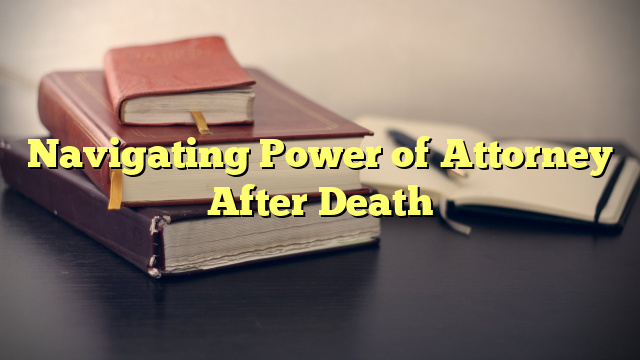Table of Contents
- What Is an Executor of an Estate?
- What Is a Last Will and Testament?
- What Is a Power of Attorney?
- What Are the Situations When a Power of Attorney Can Be Revoked?
- What Happens When a Person Dies With a Power of Attorney in Place?
- Does Power of Attorney Remain Valid After Death?
- How to Get Power of Attorney After Death?
- Things to Consider When Obtaining Power of Attorney After Death
What Is an Executor of an Estate?
An executor of an estate is a person designated by the deceased in a Last Will and Testament to manage the estate. This includes making sure all debts, taxes, and other obligations are paid and any remaining assets are distributed according to the deceased’s wishes.
What Is a Last Will and Testament?
A Last Will and Testament is a legal document that sets out the wishes of the person who is making the will, including who should receive any assets, who should take care of any minor children, and who should handle the deceased’s estate. It also names an executor, who is responsible for carrying out the wishes contained in the will.
What Is a Power of Attorney?
A Power of Attorney is a document that allows a person to appoint another person to manage their financial and legal affairs if they become incapacitated or unable to do so themselves. The person appointed is known as the attorney-in-fact or agent. The attorney-in-fact is granted the power to make decisions on behalf of the grantor, including signing documents, managing finances, and making medical decisions.
What Are the Situations When a Power of Attorney Can Be Revoked?
A Power of Attorney can be revoked in several situations, including when the grantor becomes mentally incapacitated, when the grantor dies, when the Power of Attorney expires, or when the grantor revokes the Power of Attorney in writing. The attorney-in-fact must also surrender the document upon request.
What Happens When a Person Dies With a Power of Attorney in Place?
When a person dies with a Power of Attorney in place, the document is no longer valid. The attorney-in-fact must surrender the document, and the executor appointed in the Last Will and Testament is responsible for managing the estate. If there is no Last Will and Testament, then the court will appoint an administrator to manage the estate.
Does Power of Attorney Remain Valid After Death?
No, a Power of Attorney does not remain valid after death. It is no longer valid when the grantor dies, and the attorney-in-fact must surrender the document to the executor of the estate.
How to Get Power of Attorney After Death?
Power of Attorney cannot be granted after death, as the grantor must be alive and able to appoint an attorney-in-fact. The executor of the estate appointed in a Last Will and Testament is responsible for managing the estate.
Things to Consider When Obtaining Power of Attorney After Death
When the court appoints an administrator to manage the estate, they may need to obtain a Power of Attorney in order to manage the estate. In this situation, they should consult an attorney to ensure the Power of Attorney is written correctly and complies with the applicable laws. The court may also need to approve the Power of Attorney before it can be used.


While I understand the necessity of navigating power of attorney after death, I do feel it sets limits on individual rights. Establishing this type of document can potentially take away one’s power to decide posthumously.
The death of a loved one brings unfathomable grief, but navigating the power of attorney after death can only add to the burden. Unfortunately, instead of being able to mourn in peace, family members are often consulted to make some difficult decisions to ensure the deceased’s wishes are carried out.
Navigating death’s POA complexities.